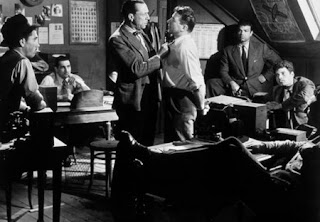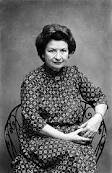A whale of a tale
Bookhound has been oddly silent this week - my laptop died having developed a very nasty virus, and it's felt most odd reading but not being able to blog about it. So there's quite a bit of catching up to do.
Moby Dick, by Herman Melville, is one of those classics that I've been meaning to read for ages, and never quite got around to - until now, that is. And a strange tale it is - part adventure story, part whaleopedia, and part classic Victorian novel. In many ways this is a timeless tale, although whale hunting may be divorced from the lives of most people nowadays, the story has a surprisingly modern feel - anyone who has seen The Perfect Storm will feel right at home with much of Moby Dick. The other very modern element is the nature of the voyage itself. Nantucket whalers would often follow the migration paths of whales circumnavigating the globe before returning home again. They could be out at sea for three or four years at a time, rarely making landfall within that period. When they did they would almost inevitably land in some of the most remote and little known regions of the world. So although ostensibly a story about a whaling ship and its adventures, this novel is also the prototype for every deep space adventure you've ever enjoyed, from Alien to the Star Trek franchise.
There is lots to admire in this novel. The opening of the book drags you headlong into what promises to be an exciting tale. The whale information is copious, and although a bit much for someone who is not into the study of cetaceans in a big way, is fascinating, and reinforces the sensation that this may be a period novel, but it remains a very modern novel too.
Where I started to have problems was when the central character of Captain Ahab was introduced. Ahab has a most odd voice, a sort of pseudo-Shakespearean cod-King Lear tone. And as he becomes more Shakespearean, some of his crew become more biblical - it's all very weird. As the tone alters the novel changes too, veering from an adventure story to a very odd and distinctly other-worldly Victorian novel to a tome on natural history. Instead of following the smooth passage of the Pequod's journey, the novel becomes increasingly disjointed, and the long discursions on whaling more and more irritating.
Obsession is the central theme of the novel, and I would guess that Ishmael's own obsession with documenting the minutiae of whaling life is designed by Melville as a parallel to Ahab's own obsession with the hunt for the whale. Overly long in places, it is nevertheless a masterful, powerful and surprisingly modern tale. It draws heavily on Shakespeare and the Bible, but this is a true whale of a tale - with an ending that would fit very nicely into the grimmer reaches of the Old Testament. Bizarre, but definitely one to read.
The picture at the top of this post was taken from the University of Cincinnati's wonderful collection of contemporary whale drawings. Please visit their website to see more.










Comments